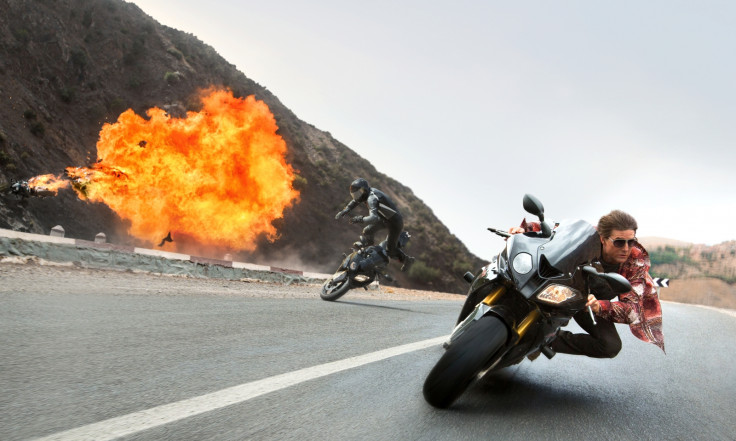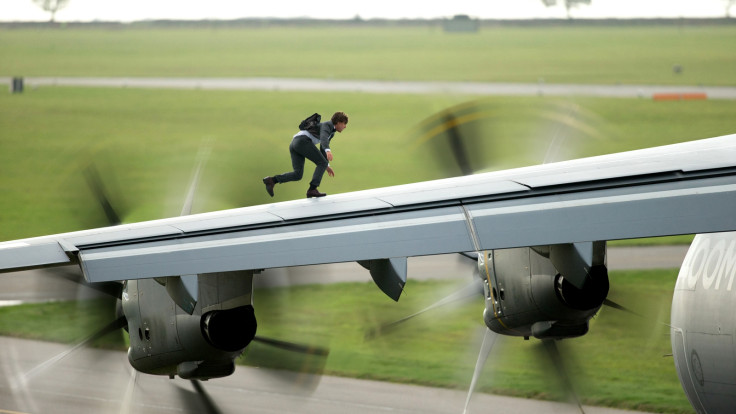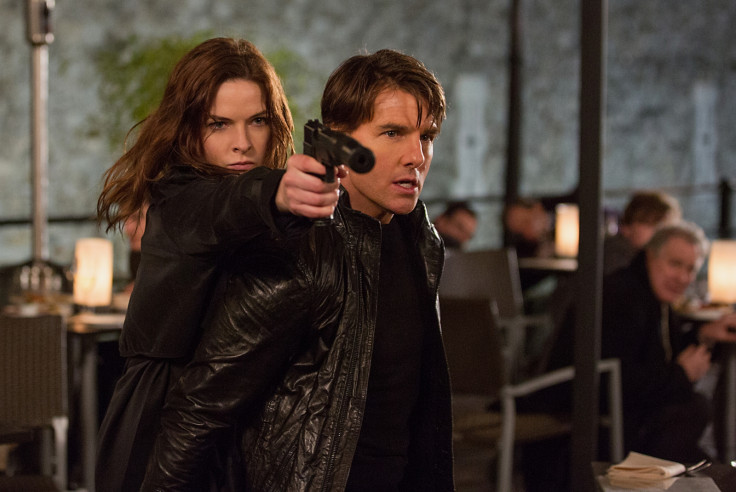Mission: Impossible - Rogue Nation review: Action-packed thrill-ride with a simple story

Christopher McQuarrie and Tom Cruise's last collaboration, Edge Of Tomorrow was one of 2014's most surprising hits and proved the recipe for a great adventure movie need not be much more than a thrilling plot, a handful of characters equipped to solve the problem and some insane action sequences thrown in. A simple-but-effective method that the writer-director has successfully carried into the fifth instalment of the Mission: Impossible franchise, Rogue Nation.
The film sees Cruise reprise his role as Impossible Mission Force agent Ethan Hunt as he tries to defeat an elusive enemy called The Syndicate – an international rogue organisation that is hell bent on causing chaos around the world and most intriguingly that no one believes exists despite Hunt's efforts to expose it.
The storyline does to some extent, build on what the fourth instalment left behind (while also simultaneously repeating some of the same points). Ghost Protocol saw Hunt and his team forced to go "off the grid" as they continued their ever-so-important missions, due to the growing doubt of their necessity and competence from the CIA and even higher American government officials.
This is still a set-up very much in play as we begin with Brandt arguing IMF's case to a panel of judges against the condemnations of smarmy CIA director agent Alan Hunley, a role in which pouty Alec Baldwin seems made for and a character who undoubtedly has some of the best lines in the whole picture – describing Hunt as "the living manifestation of destiny" merely just one of them.
The first scene is arguably one the film's most exciting, as it swiftly escalates into Hunt hanging from the outside of a speeding plane as his fellow agents, Brandt (Jeremy Renner), Luther (Ving Rhames) and Benji (Simon Pegg) frantically try to help him retrieve an explosive-filled pallet from on board that has fallen into the wrong hands.
In a way, it is a shame that it comes so early on that you cannot fully appreciate it as your head's not quite in the game yet but you cannot blame the film-makers from employing the "start as you mean to go on" theory here – it means that you find yourself with a grin on your face only the Cheshire Cat would rival, and you are not even five minutes in.
Bad habits of previous Missions tended to comprise of overcomplicating the plot and making the franchise into something that it was not – it is not supposed to be a gritty, spy movie with lots of backstory, it is meant to be fun. In this sense, with Rogue Nation, the series has finally found its feet.

That is not to say Mission Impossible 5 is completely defunct on any underlying themes. Throughout it delves, albeit shallowly, into Hunt's obsessive need to be the good guy and makes frequent jabs at him one day "going too far" with his assignments, alluding that maybe one day, the mission will in fact prove itself, impossible. (Is this a foreshadowing of the end of the franchise? Say it isn't so!)
It even manages to draw upon a somewhat Skyfall-like arc in that while the world of espionage might seem an exciting one, it is not always the spy's decision, nor in their best interests, to do the things they do and these little touches add some level of humanity to otherwise seemingly under-explored characters.
For those who were worried about McQuarrie's skill in handling more contained, combat sequences given his past filmography in larger than life, hardened sci-fi, his ability is shown best in a scene that takes place in an elegant Viennese opera house. Hunt, convinced Solomon Lane – his link to the Syndicate – is in attendance of the show, employs Benji to help him track him down (with a rather suspect computer disguised as a theatre programme, mind you, but the novelty is there all the same).
The pair soon discover they have become embroiled in a plot to kill the Austrian chancellor and as the tension gracefully builds and the two assassins poise themselves with their flute rifles to the swells of Nessun Dorma, Hunt has to tackle the villains behind the curtain, jumping from moving spotlight booms, riggings and set props. It does not feel like your typical Mission Impossible, it feels much more sophisticated than that.
Something else McQuarrie excels at is making sure his female characters are not simply there for the sole purpose of being a love interest to the protagonist. In fact, it is fair to say they even overshadow the men in some instances.
Much like Emily Blunt's Rita Vrataski in Edge Of Tomorrow, the only character that matches Hunt on screen throughout Rogue Nation is Ilsa Faust (Rebecca Ferguson), a glamorous yet tough, morally questionable agent who has a penchant for breaking her assailant's necks with her thighs and who acts as the mysterious thread that ties each scene together.

But even Faust does not detract from the film reaffirming why most audience members are there: Cruise. In the scene that catapults Hunt, Benji and Faust into working together, we see Ferguson immerge from her Moroccan pool, gasping for air and checking a stopwatch, as she lets out a disgruntled sigh as the flashing timer reads 1:57.
This random anguish is explained a few minutes later when she reveals the only way to get hold of the information they need to take down The Syndicate is for the trio to swap out an electronic database contained inside a huge vat of water, and suddenly you realise: "That must be why she was training herself to hold her breath!"
But her training renders itself unnecessary now that good ol' Hunt is here to save the day, as he automatically adopts the dangerous task of completing the mission without even a second glance at Faust from either him nor Benji, not even so much as a query as to whether she could do it.
Despite this, the seemingly bizarre disregard for a fellow agent's skills can be overlooked as it inevitably leads to one of the film's stand-out sequences that sees Cruise submerged completely under water and as time ticks on, you can't help but hold your breath yourself as you will him to succeed as more and more obstacles get in his way. But then again, you never really doubt that he will.
Part of the fun of Mission: Impossible is that you know Hunt will never die, leaving the excitement hinging solely on how he's going to execute his superiority over the bad guy, not if. And Cruise is the star, no doubt. His stunts in this instalment are probably the most impressive we have seen in the franchise so far and that is a bold statement to make considering what he and the films are known best for.
While it does not do much in way of an intricate plot and usual necessary character development, it makes up for in a bucket load with stylish visuals and often unbelievable action and in the fun of it, you do not even care that it does not really make much sense. Abandoning all burden of creating a bogged-down story that concentrates on narrative and character history, Rogue Nation is able to truly wow in several fleeting scenes of espionage and huzzah moments.
The Mission: Impossible franchise will never be the serious, oh-so-personal, brooding Bond series that 007 director Sam Mendes has manipulated it so successfully to be and basically if it tried to, you would probably end up with something reminiscent of McQuarrie and Cruise's first film together, Jack Reacher. And nobody really wants a repeat of that now, do they?

© Copyright IBTimes 2024. All rights reserved.






